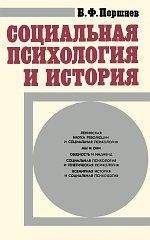Скотт Плаус - Психология оценки и принятия решений

Скачивание начинается... Если скачивание не началось автоматически, пожалуйста нажмите на эту ссылку.
Жалоба
Напишите нам, и мы в срочном порядке примем меры.
Описание книги "Психология оценки и принятия решений"
Описание и краткое содержание "Психология оценки и принятия решений" читать бесплатно онлайн.
Книга посвящена психологии принятия решений - теме, находящейся на стыке когни-тивной и социальной психологии и практически не освещенной в современной литературе. Автор в доступной форме анализирует особенности восприятия, памяти, модели принятия решений, социальную сторону оценки, выбора и принятия решений, типичные ситуации. Книга насыщена примерами из реальной жизни, тестами и уникальными упражнениями. Она поможет читателю понять механизм формирования оценки и принятия решений, а значит, избежать многих ошибок, просчетов и ловушек, подстерегающих его на этом пути.
Sullivan, K. (1990, October 5). Chip rivals in comedy of errors. San Francisco Examiner,pp. Bl, B4.
Suls, J. M., Miller, R. L. (Eds.). (1977). Social comparison processes: Theoretical and empirical perspectives.Washington, DC: Hemisphere Publishing Corporation.
Sweeney, P. D., Anderson, K., Bailey, S. (1986). Attributional style in depression: A meta-analytic review. Journal of Personality and Social Psychology, 50,974-991.
Synodinos, N. E. (1986). Hindsight distortion: "I knew-it-all along and I was sure about it". Journal of Applied Social Psychology, 16,107—117.
Taylor, D. M., Doria, J. R. (1981). Self-serving and group-serving bias in attribution. Journal of Social Psychology, 113,201—211.
Taylor, D. M., Jaggi, V. (1974). Ethnocentrism and causal attribution in a South Indian context. Journal of Cross Cultural Psychology, 5,162—171.
Taylor, S. E., Brown, J. D. (1988). Illusion and Well-being: A social-psychological perspective on mental health. Psychological Bulletin, 103,193-210.
Taylor, S. E., Fiske, S. T. (1975). Point of view and perceptions of causality. Journal of Personality and Social Psychology, 32,439—445.
Taylor, S. E., Fiske, S. T. (1978). Salience, attention, and attribution: Top of the head phenomena. In L. Berkowitz (Ed.), Advances in experimental social psychology(Vol. 11, pp. 249—288). New York: Academic Press.
Taylor, S. E., Fiske, S. Т., Close, M., Anderson, C, Ruderman, A. (1977). Solo status as a psychological variable: The power of being distinctive.Unpublished manuscript, Harvard University, Cambridge, MA.
Taylor, S. E., Koivumaki, J. H. (1976). The perception of self and others: Acquaintanceship, affect, and actor-observer differences. Journal of Personality and Social Psychology, 33,403—408.
Taylor, S. E., Thompson, S. C. (1982). Stalking the elusive "vividness" effect. Psychological Review, 89,155—181.
Teger, A. I. (1980). Too much invested to quit.New York: Pergamon Press.
Tetlock, P. E. (1983). Accountability and complexity of thought. Journal of Personality and Social Psychology, 45,74—83.
Tetlock, P. E. (1985a). Accountability: A social check on the fundamental attribution error. Social Psychology Quarterly, 48,227—236.
Tetlock, P. E. (1985b). Accountability: The neglected social context of judgment and choice. Research in Organizational Behavior 7,297—332.
Tetlock, P. E., Kim, J. I. (1987). Accountability and judgment processes in a personality prediction task. Journal of Personality and Social Psychology, 52,700-709.
349
Tetlock, P. E., Skitka, L., Boettger, R. (1989). Social and cognitive strategies for coping with accountability: Conformity, complexity, and bolstering. Journal of Personality and Social Psychology, 57,632—640. Thaler, R. (1980). Toward a positive theory of consumer choice. Journal of
Economic Behavior and Organization, 1,39—60.
Thaler, R. (1985). Mental accounting and consumer choice. Marketing Science, 4,199—214.
Thomas, E. J., Fink, C. F. (1961). Models of group problem solving. Journal of Abnormal and Social Psychology, 63,53—63.
Thompson, S. C, Kelley, H. H. (1981). Judgments of responsibility for activities in close relationships. Journal of Personality and Social Psychology, 41,469-477.
Thorndike, E. L. (1920). A constant error in psychological ratings. Journal of Applied Psychology, 4,25—29.
Thorngate, W. (1980). Efficient decision heuristics. Behavioral Science, 25,219-225.
Tindale, R. S. (1989). Group vs individual information processing: The effects of outcome feedback on decision making. Organizational Behavior and Human Decision Processes, 44,454—473.
Tindale, R. S., Sheffey, S., Filkins, J. (1990). Conjunction errors by individuals and groups.Paper presented at the annual meeting of the Society for Judgment and Decision Making, New Orleans, LA.
Tversky, A. (1969). Intransitivity of preferences. Psychological Review, 76,31-48.
Tversky, A. (1972). Elimination by aspects: A theory of choice. Psychological Review, 79,281-299.
Tversky, A., Kahneman, D. (1971). Belief in the law of small numbers. Psychological Bulletin, 76,105—110.
Tversky, A., Kahneman, D. (1973). Availability: A heuristic for judging frequency and probability. Cognitive Psychology, 5,207—232.
Tversky, A., Kahneman, D. (1974). Judgment under uncertainty: Heuristics and biases. Science, 185,1124—1130.
Tversky, A., Kahneman, D. (1981). The framing of decisions and the psychology of choice. Science, 211,453—458.
Tversky, A., Kahneman, D. (1982). Judgments of and by representativeness. In D. Kahneman, P. Slovic, A Tversky (Eds.), Judgment under uncertainty: Heuristics and biases.Cambridge, England: Cambridge University Press.
Tversky, A., Kahneman, D. (1983). Extensional versus intuitive reasoning: The conjunction fallacy in probability judgment. Psychological Review, 90,293-315.
Tversky, A., Kahneman, D. (1986). Rational choice and the framing of-decisions. Journal of Business, 59,S251—S278.
350
Tversky, A., Sattath, S., Slovic, P. (1988). Contingent weighting in judgment and choice. Psychological Review, 95,371—384.
Tversky, A., Slovic, P., Kahneman, D. (1990). The causes of preference reversal. American Economic Review, 80,204—217.
U.S. Congress: House, Subcommittee of the Committee on Government Operations. (1981, May 19—20). Failures of the North American Aerospace Defence Command's (NORAD) Attack Warning System.97th Congress, First Session, Washington, DC: U.S. Government Printing Office.
Valins, S., Nisbett, R. E. (1971). Attribution processes in the development and treatment of emotional disorders. In E. E. Jones et al. (Eds.), Attribution: Perceiving the causes of behavior.Morristown, NJ: General Learning Press.
Vallone, R. P., Griffin, D. W. 5Lin, S., Ross, L. (1990). Overconfident prediction of future actions and outcomes by self and others. Journal of Personality and Social Psychology, 58,582—592.
Vallone, R. P., Ross, L., Lepper, M. R. (1985). The hostile media phenomenon: Biased perception and perceptions of media bias in coverage of the Beirut massacre. Journal of Personality and Social Psychology, 49,577—585.
Verplanken, В., Pieters, R. G. M. (1988). Individual differences in reverse hindsight bias: I never thought something like Chernobyl would happen, did I? Journal of Behavioral Decision Making, 1,131 — 147.
von Neumann, J., Morgenstern, O. (1947). Theory of games and economic behavior.Princeton, NJ: Princeton University Press.
vos Savant, M. (1990, September 9). Ask Marilyn. Parade,p. 13.
Wagenaar, W. A. (1970a). Appreciation of conditional probabilities in binary sequences. Acta Psychologica, 34,348—356.
Wagenaar, W. A. (1970b). Subjective randomness and the capacity to generate information. Acta Psychologica, 33,233—242.
Wagenaar, W. A. (1972). Generation of random sequences by human subjects: A critical survey of the literature. Psychological Bulletin, 77,65—72.
Wallsten, T. S. (1981). Physician and medical student bias in evaluating diagnostic information. Medical Decision Making, 1,145—164.
Walster, E. (1967). Second-guessing important events. Human Relations, 20,239-249.
Ward, W. C, Jenkins, H. M. (1965). The display of information and the judgment of contingency. Canadian Journal of Psychology, 19,231—241.
Warwick, D. P. (1975, February). Social scientists ought to stop lying. Psychology Today,pp. 38, 40, 105, 106.
Wason, P. C. (1960). On the failure to eliminate hypotheses in a conceptual task. Quarterly Journal of Experimental Psychology, 12,129—140.
Wason, P. C, Johnson-Laird, P. N. (1972). Psychology of reasoning: Structure and content.Cambridge, MA: Harvard University Press.
Watson, D. (1982). The actor and the observer: How are their perceptions of causality divergent? Psychological Bulletin, 92,682—700.
351
Weaver, W. (1982). Lady luck: The theory of probability.New York: Dover
Publications.
Weinberg, A. M. (1981). Three Mile Island in perspective: Keynote address. In Т. Н. Moss D. L. Sills (Eds.), The Three Mile Island nuclear accident: Lessons end implications. Annals of the New York Academy of Sciences(Vol. 365, pp. 1—12). The New York Academy of Sciences. Weinstein, N. D. (1980). Unrealistic optimism about future life events. Journal of Personality and Social Psychology, 39,806—820. Weirich, P. (1984). The St. Petersburg gamble and risk. Theory and Decision,
17,193-202.
Weldon, E., Gargano, G. M. (1985). Cognitive effort in additive task groups: The effects of shared responsibility on the quality of multiattribute judgments. Organizational Behavior and Human Decision Processes, 36,348-361.
Weldon, E., Gargano, G. M. (1988). Cognitive loafing: The effects of accountability and shared responsibility on cognitive effort. Personality and Social Psychology Bulletin, 14,159—171.
Wells, G. L., Harvey, J. H. (1977). Do people use consensus information in making causal attributions? Journal of Personality and Social Psychology, 35,279-293.
White, P. A., Younger, D. P. (1988). Differences in the ascription of transient internal states to self and other. Journal of Experimental Social Psychology, 24,292-309.
Wicker, A. W. (1969). Attitudes versus actions: The relationship of verbal and overt behavioral responses to attitude objects. Journal of Social Issues, 25,41-78.
Wicker, A. W. (1971). An examination of the "other variables" explanation of attitude-behavior inconsistency. Journal of Personality and Social Psychology, 19,18-30. Williams, L. (1990, February 14). Decisions, decisions, decisions: Enough!
New York Times,pp. Bl, B5.
Wilson, D. K., Kaplan, R. M., Schneiderman, L. J. (1987). Framing of decisions and selections of alternatives in health care. Social Behaviour, 2,51-59.
Wilson, G. Т., Abrams, D. (1977). Effects of alcohol on social anxiety and psychological arousal: Cognitive versus pharmacological processes. Cognitive Research end Therapy, 1,195—210. Wilson, R. (1979, February). Analyzing the daily risks of life. Technology
Review,pp. 41—46.
Word, С. О., Zanna, M. P., Cooper, J. (1974). The nonverbal mediation of self-fulfilling prophecies in interracial interaction. Journal of Experimental Social Psychology, 10,109—120.
Wortman, С. В. (1975). Some determinants of perceived control. Journal of Personality and Social Psychology, 31,282—294.
352
Wright, G. N., Phillips, L. D., Whalley, P. C, Choo. G. Т., Ng, K., Tan, I. (1978). Cultural differences in probabilistic thinking. Journal of Cross Cultural Psychology, 9,285—299.
Wright, J. C. (1962). Consistency and complexity of response sequences as a function of schedules of noncontingent reward. Journal of Experimental Psychology, 63,601-609.
Wright, P. (1974). The harassed decision maker: Time pressures, difractions, and the use of evidence. Journal of Applied Psychology, 59,555—561.
Wright, W. F., Anderson, U. (1989). Effects of situation familiarity and financial incentives on use of the anchoring and adjustment heuristic for probability assessment. Organizational Behavior and Human Decision Processes, 44,68—82.
Wright, W. F., Bower, G. H. (1992). Mood effects on subjective probability assessment. Organizational Behavior and Human Decision Processes, 52,276-291.
Wyer, R. S., Jr. (1976). An investigation of the relations among probability estimates. Organizational Behavior and Human Performance, 15,1—18.
Yates, J. F. (1990). Judgment and decision making.Englewood Cliffs, NJ: Prentice Hall
Yates, J. F., Zhu, Y., Ronis, D. L., Wang, D., Shinotsuka, H., Toda, M. (1989). Probability judgment accuracy: China, Japan, and the United States. Organizational Behavior and Human Decision Processes, 43,145—171.
Zajonc, R. B. (1965). Social facilitation. Science , 149,269—274.
Заимствованные рисунки и таблицы
РИСУНКИ
3.1: Doonesbury copyright 1992 G. В. Trudeau. Reprinted with permission of Universal Press Syndicate. All rights reserved.
4.1: Adapted from J. R. Block and H. E. Yuker, Can You Believe Your Eyes(New York: Gardner, 1989), pp. 107 and 109, by permission of J. R. Block. 4.2: From Stanley Coren and Joel Miller, "Size Contrast as a Function of Figural Similarity, Perception and Psychophysics,vol. 16, pp. 355—357. Reprinted by permission of Psychonomic Society, Inc., and Prof. Coren.
6.1: From Amos Tversky and Daniel Kahneman, "The Framing of Decisions and the Psychology of Choice", Science,vol. 211, p. 453ff. Copyright 1981 by AAAS. Used by permission of the AAAS and Prof. Tversky.
Подписывайтесь на наши страницы в социальных сетях.
Будьте в курсе последних книжных новинок, комментируйте, обсуждайте. Мы ждём Вас!
Похожие книги на "Психология оценки и принятия решений"
Книги похожие на "Психология оценки и принятия решений" читать онлайн или скачать бесплатно полные версии.
Мы рекомендуем Вам зарегистрироваться либо войти на сайт под своим именем.
Отзывы о "Скотт Плаус - Психология оценки и принятия решений"
Отзывы читателей о книге "Психология оценки и принятия решений", комментарии и мнения людей о произведении.


























